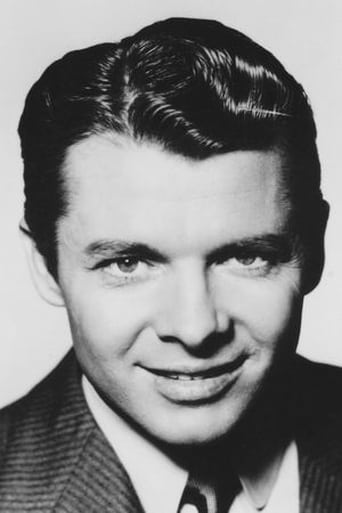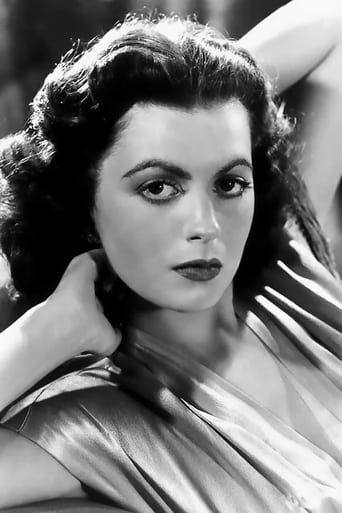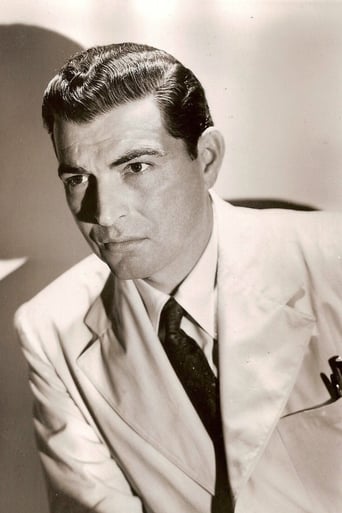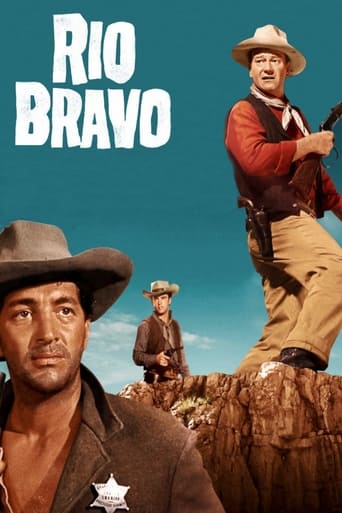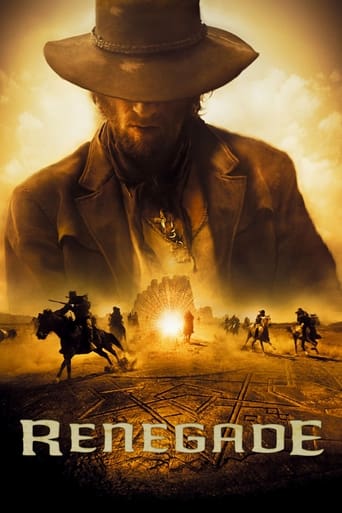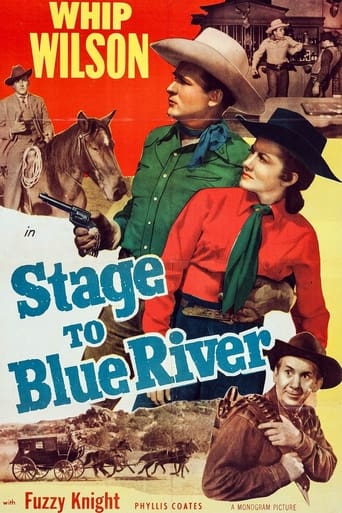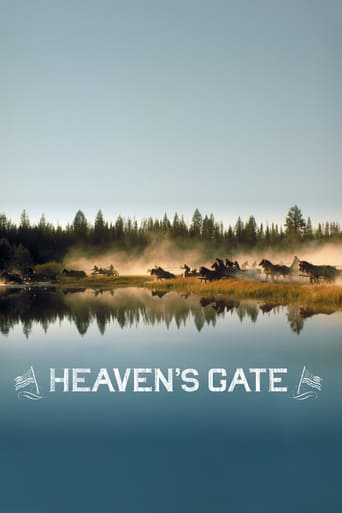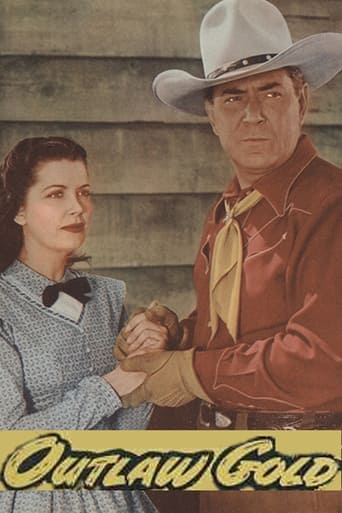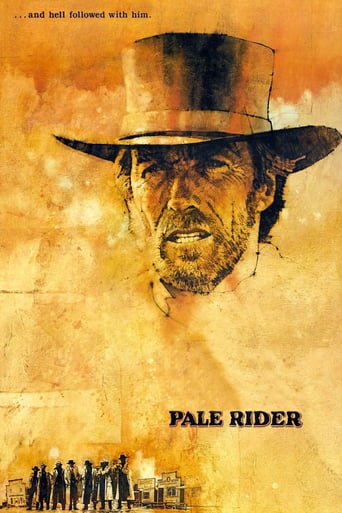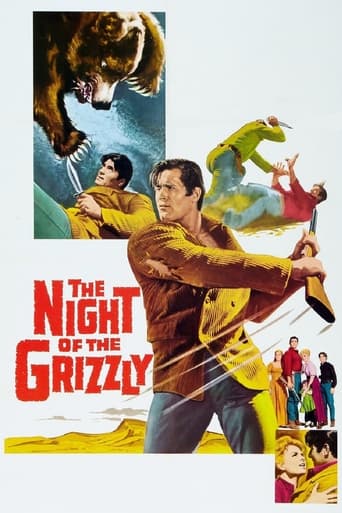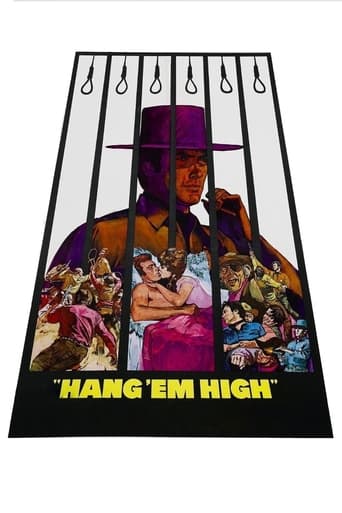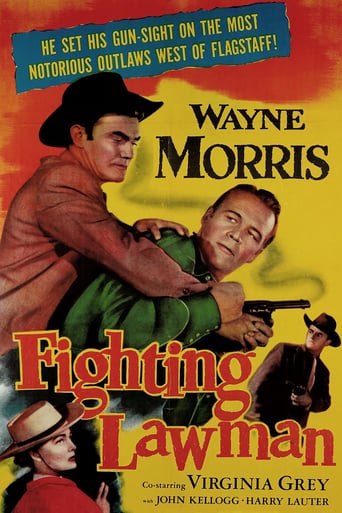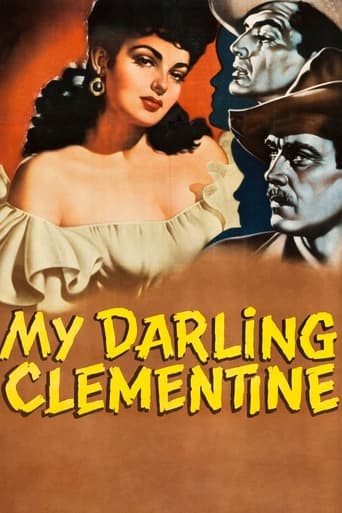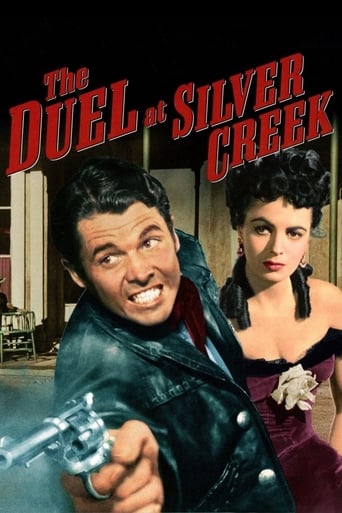
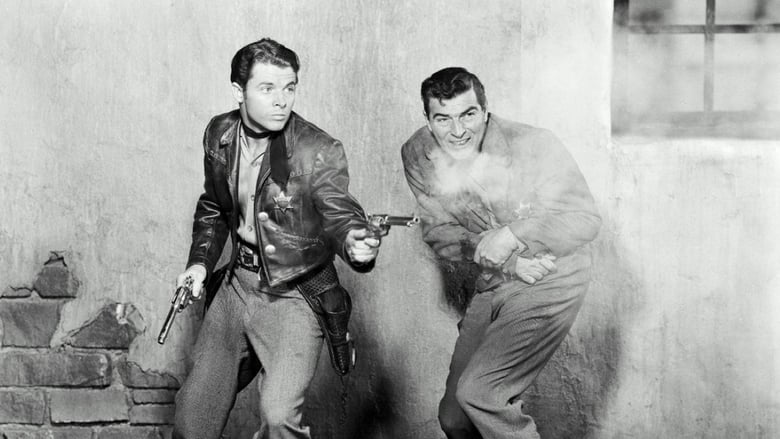
The Duel at Silver Creek (1952)
When a gang of ruthless claim jumpers brutally murders his miner father, a gunman known as the Silver Kid joins forces with the local marshal to free the tiny town of Silver City from the clutches of the dastardly villains.
Watch Trailer
Cast


Similar titles
Reviews
Stephen McNally is a rugged hero, playing the marshal "Lightning" Tyrone. He goes up against a vicious gang of "claim jumpers" making life miserable for miners. He makes the acquaintance of a youth who's been dubbed "The Silver Kid", played by WWII hero Audie Murphy, and decides that he can put The Kid to use as his deputy.Although pretty average in terms of story, this is still entertaining thanks to the assured direction of Don Siegel, in the years before he'd graduated to the ranks of major A list directors. He knew how to handle action scenes, for one thing, and "The Duel at Silver Creek" is reasonably rousing at times. Overall, the filmmaking is quite capable, with top notch location work and superb creation of the classic Western look (in glorious Technicolor). You will notice that Siegel and the screenwriters don't exactly bother to keep the identities of certain villains a secret. You're also left in little doubt as to how the predictable script will unfold, so the scenario isn't about suspense, despite the fact that good guy Lightning has been badly wounded and can't handle a gun as well as he used to.There are very fine performances by a well chosen cast: McNally, a confident young Murphy, lovely ladies Faith Domergue and Susan Cabot, Gerald Mohr, Eugene Iglesias, James Anderson, Walter Sande, Lee Marvin, George Eldredge, Griff Barnett, Harry Harvey, etc.It's worth noting that the run time is a mere 77 minutes. It's always nice when actors and filmmakers can tell their story in a succinct manner and not drag it out any longer than necessary.Six out of 10.
"The Duel at Silver Creek" is a 1952 Western starring Stephen McNally and Audie Murphy as a sheriff and green deputy who are trying to track down a murderous gang of claim jumpers. Meanwhile the sheriff pursues a new hottie in town (Faith Domergue) while the deputy is interested in a teenage cutie (Susan Cabot). A 27 year-old Lee Marvin is on hand as one of the possibly shady characters.I was surprised at how much I enjoyed this old Western. Murphy is great as the youthful and likable fast-gun and McNally is effective as the sheriff. Domergue is beautiful, but duplicitous and even shockingly evil (e.g. the unexpected strangling scene). Cabot is a joy to watch and it's interesting to see Marvin so young.The story is interesting with McNally narrating and it easily keeps your attention at only 77 minutes, but what brings my rating down is the roll-your-eyes plot gimmicks (for lack of better word) typical of old Westerns. For instance, the sheriff's bad finger that makes it almost impossible for him to squeeze the trigger of his handgun and how this becomes a big secret. And then there's the way the deputy expertly grazes the sheriff's arm in order to take his place in a fast-draw duel (What if he was off by a couple of centimeters?). If it weren't for these types of lame aspects I'd give "The Duel at Silver Creek" a higher grade.The locations are good, shot at three California ranches -- Corrigan Ranch, Iverson Ranch and Janss Conejo Ranch – as well as Vasquez Rocks.GRADE: B-
I watched this film when it was recently shown on British television, largely because it was an early work by Don Siegel, at the time an up-and-coming young director, but later to become one of Hollywood's most distinguished directors, responsible for films as good as "Dirty Harry" and "The Shootist". It is a Western of the traditional heroes-and-villains variety. The villains are a gang of claim jumpers whose victims are the local miners. Their method of working is a simple one. They pick on a lone miner, force him to sign over his claim under threat of death, and then kill him anyway so he cannot inform on them. (The film does not point out the obvious hole in the scheme, namely that the claim jumpers will not be able to enforce their rights to the claims they take over in this way without revealing their identities).The main heroes are the local Marshal and the Silver Kid, a young gambler and gunfighter whose father was one of the claim jumpers' victims and who joins forces with the Marshal to seek his revenge. There are two complicating factors. One is that the Marshal has fallen in love with a young woman named Opal Lacey who is secretly in league with the killers. The other is that the Marshal has been shot in the shoulder, an injury which affects his ability to handle a gun.The best-known actor in the film is Audie Murphy. He made a few good films, most notably "The Red Badge of Courage", but a lot of his output consisted of routine Westerns. Murphy always seemed to be struggling against two disadvantages. The first was the fact that because he had become well-known to the American public for something other than his acting- he was a much-decorated war hero- he was unable to ditch his odd, feminine-sounding Christian name in favour of something more rugged. The second was his smooth, youthful looks which meant that he was frequently typecast as a callow young greenhorn even when he was in his thirties.Here, however, Murphy is pretty good as the Kid, a brash and undisciplined but basically decent young man who gradually grows in courage and stature. I would agree with the reviewer who pointed out that the relationship between the Kid and Steve McNally's older, wiser Marshal is similar to that between John Wayne and Ricky Nelson in "Rio Bravo". (I've never seen "El Dorado", the other film he mentions)."Duel at Silver Creek" is a fairly standard Western. As others have pointed out, its plot- the one about the heroic lawman tackling a gang of bandits- is familiar enough to be called a cliché, although that in itself does not mean that the film itself will be a bad one. After all, some very good Westerns, and at least two great ones ("High Noon" and "Gunfight at the OK Corral") have been based around it. "Duel .." is in nothing like the same class as those two films, but Siegel handles the action well, showing signs of the great director he was to become. It may be a B-movie, but it is a fast-paced, entertaining and enjoyable one. 6/10
"Big Steal" director Don Siegel's first western outing, "Duel at Silver Creek," bristles with gunfights galore, posses of dust-raising horsemen, and a hefty body count. Decorated World War II veteran Audie Murphy co-stars with Stephen McNally and Faith Domergue. Lee Marvin lurks on the periphery as a minor supporting character while perennial bad guy Gerald Mohr portrays the chief villain who leads a gang of homicidal henchmen. Friendship, deception, intrigue, and betrayal emerge as the major themes in this briskly-paced, 77-minute, Technicolor, horse opera that doesn't wear out its welcome. "Armored Car Robbery" scenarist Gerald Drayson Adams and "Buccaneer's Girl" scribe Joseph Hoffman have fashioned an interesting sagebrusher that takes advantage of several film noir elements. First, leading lady Faith Domergue is a murderous siren who takes McNally for a ride. Second, the McNally lawman provides the narration and endures the paranoia that comes with getting crippled by a bullet. "Duel at Silver Creek" was among the earliest westerns that used the gimmick of the gunman who had trouble pulling the trigger. This theme would become a convention during the 1950s. Third, the Silver Kid is a black, leather-coat clad trigger-happy gambler out for revenge that the McNally lawman exploits because he cannot reveal his own dark secret without jeopardizing his life. Indeed, while most of the action occurs during the day, a murder takes place at night. Nevertheless, "Duel at Silver Creek" could be classified as a film noir western.Against a vigorous montage of murder and mayhem, the narrator (Stephen McNally) establishes the conflict in "Duel at Silver Creek." He begins: "For some time there'd been reports about a vicious gang of claim jumpers who'd been forcing miners to sign away their claims through fear of torture or death. The claims were then transferred to one of their own men or were sold to innocent miners who had just arrived in the territory and were looking for new claims to work. These claim jumpers were smart enough not to try to grab some of the bigger mines where there might be enough men working to put up a fight. Usually, they picked on claims being worked by one or two men. And the more defenseless these men were, the better the claim jumpers liked it. Their plan was simple and foolproof, because nobody knew who they were. Since their victims either disappeared, or were found dead, there wasn't anyone who could put their finger on these jumpers. Working a claim became a might dangerous business for any miner because no one knew when or where they'd turn up next." Two miners are shot dead in cold blood by the claim jumpers. Luke Cromwell (Audie Murphy of "Comanche Creek") and his father have just made a gold strike when the claim jumpers ride up for their next foray. "There's enough dust there to blind a man. The jubilant father proclaims, "Looks like we staked one with some pay dirt this time, son!" The father beams with joy. "Now, you can buy all the silver you want. You won't have to go around playing poker for it." Rod Lacey (Gerald Mohr of "Invasion, U.S.A.") sends two men to ambush Luke after he rides away. Luke thwarts the two ambushers.McNally resumes his narration: "Then old man Tompkins struck it rich a few miles north of Silver City and the jumpers moved in and killed him. As usual, they made a clean getaway, but this time they left a trail I thought we could follow and as I was Marshal of Silver City, I decided to get up a posse to track them down." Marshal Tyrone's mentor, Dan 'Pop' Muzik (Griff Barnett of "Cass Timberlane"), wants to serve as marshal for Tyrone while the marshal is out with the posse. Tyrone leaves him in charge of Silver City. The posse runs down the claim jumpers, but Tyrone catches a slug in his right shoulder. The posse continues their pursuit, while Tyrone recuperates at Fort Lowell. He meets Opal Lacy (Faith Domergue of "Where Danger Lives") before she takes a stage to Silver City. The authorities bring a dying man to Fort Lowell and Opal offers to assist the physician. She sends the wounded Tyrone off on an errand. After the two men leave the man with Opal, she strangles him quickly.Later, she tells Tyrone that she is heading to Silver City to help her brother, Rod, run his mining business. When Tyrone returns, he learns that Pop was gunned down at night in the back. Immediately, Tyrone suspects the culprit in Pop's murder is a Mexican gunman named Johnny Sombrero (Eugene Iglesias of "The Brave Bulls") who has been a burr under his saddle. Rod provides Johnny with an alibi, and Opal suggests the killer may be the Silver Kid. "They say the Silver Kid is awfully fast with his guns," she warns Tyrone. Instead of arresting the Silver Kid (Audie Murphy), Tyrone deputizes him because he knows that he needs a fast gun to back him up.Opal strings along Tyrone. They call each other Brown Eyes and Lightning and he falls for him lock, stock and barrel. The Kid and Tyrone have an on-again, off-again relationship because he tries to convince the marshal that Brown Eyes is treacherous. Eventually, Tyrone learns about Brown Eyes' treachery. Initially, Tyrone believes that the Kid betrayed him when he informed Johnny about his inability to pull the trigger. The surprise ending where one of the heroes shoots the other one in the arm is clever, and Siegel and his writers ramrod a lot of exposition down our throats under the circumstances. Although Silver Creek is never seen, one character describes the setting for the finale as located near Silver Creek. Evidently, Universal Studios decided to bank on a sizzling, tell-all title like "Duel at Silver Creek" rather than something like "Duel near Silver Creek." The flavorful dialogue, especially the exchanges between Murphy and McNally, is quite good.


